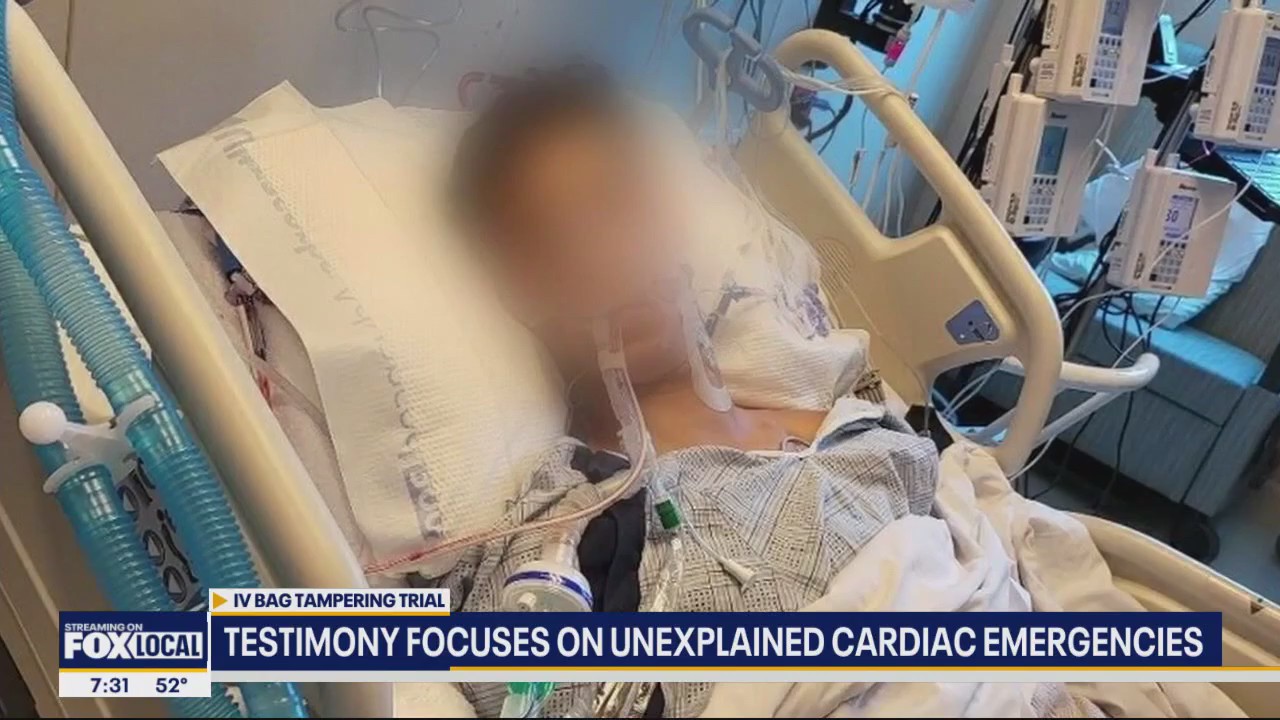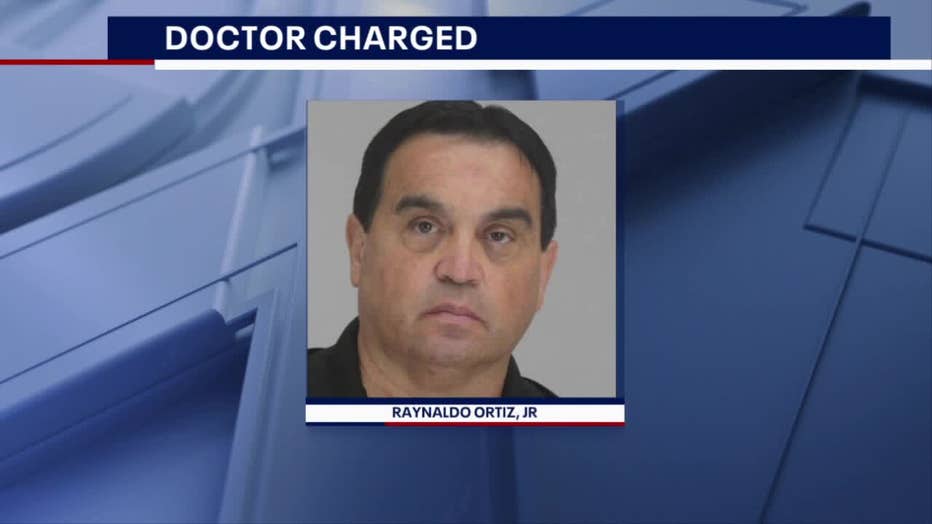Husband of Dallas doctor who died from alleged tainted IV bag gives emotional testimony about her death

Dallas doctor trial: Widower recalls wife's death
Dr. Melanie Kaspar died after treating herself at home with an IV bag that prosecutors say was secretly injected with dangerous drugs, ready to hurt unsuspecting patients. Dr. Raynaldo Ortiz is facing charges in connection to Kaspar's death and several other patients with medical complications.
DALLAS - The husband of the anesthesiologist who was killed after prosecutors say she treated herself with a tainted IV bag took the stand Wednesday in the trial of Dr. Raynaldo Ortiz.
He was emotional as he recounted the traumatic way in which his wife died.
The jurors were visibly moved as they heard the horrifying details of how Dr. Melanie Kaspar died after treating herself at home with an IV bag that prosecutors say was secretly injected with dangerous drugs, ready to hurt unsuspecting patients.
John Kaspar said he would save his comments until the end of the trial, but he shared this with FOX 4 about his wife of 30 years just months after she died in 2022.
"My wife was a great person, and a great doctor," he said.
He told the jury that he and his wife met at Texas A&M and they got married three and a half years later.
Melanie was an anesthesiologist who worked at multiple medical facilities, including the Baylor Scott & White Surgicare in North Dallas.
He testified that, on Tuesday, June 21, 2022, Melanie said she was not feeling well, and tried to get her case covered, but went to work anyway.
Later that afternoon, she went home and felt worse.
She asked her husband to help her administer an IV bag, something he had seen her do a couple of times before in their 30 years of marriage.
She went to their back house.
Five minutes later, she called her husband, screaming.
He sprinted to her and she screamed, "Call an ambulance."
He asked, "Is it the IV bag?"
She said, "No, it's my arm and my chest."
"My biggest regret was not ripping the IV bag out," Kaspar testified Wednesday.
He said she spoke incoherently for 10 seconds and then fell silent.
Kaspar said he immediately performed CPR until paramedics arrived.
She was pronounced dead at the scene.
Paul Coggins is a former U.S. attorney, now a white-collar crimes attorney.
Coggins says Kaspar’s testimony could be the most powerful in the trial to jurors.
"This has been a trial with a lot of emotional testimony. People who went in for simple operation, woke up on intubation, lives changed forever, medical personnel grappling with, why is this happening?" he said. "He lost his wife. No way the defense can cross examine."
Melanie's autopsy results in August revealed an unexplained presence of bupivacaine in her blood stream.
Earlier, the Surgicare's administrator, Ashley Burks, was on the stand again.
She said the number of hospital transfers between May and August was "staggering."
The defense worked to offer other health reasons patients may have suffered emergencies.
"The defense is trying to show no motive, no pattern, and others had access," Coggins said.

Trial testimony focuses on unexplained emergencies
The first witnesses took the stand Tuesday in the trial of a North Texas doctor who is accused of tampering with IV bags. They talked about a series of unexplained cardiac emergencies. They kept happening under different doctors and nurses.
On the first day of witness testimony, Baylor Scott and White Surgicare’s administrator told jurors that unexplained cardiac emergencies kept happening after routine procedures at the outpatient center on Coit Road in North Dallas.
Burks choked back tears while describing her concerns about the situation. She said it occurred over a period of months in 2022.
"We were perplexed because the incidents were happening under different doctors and nurses," she said. "We were desperately trying to figure out what was going on."
In 2021, Burks said there were five transfers to hospitals for complications or emergencies. But during a four-month period month in 2022, that number soared to 14.
After a life-threatening scare involving an 18-year-old patient, Burks testified they looked at his IV bag and found a hole in it.
Dr. Raynaldo Ortiz is on trial for injecting heart-stopping drugs into the IV bags.

Prosecutors said he was trying to deflect attention from an earlier investigation into his actions while working at the center.
"One of the things the defense is gonna try to do is cast doubt on this whole motive argument that he was trying to shift blame on other people because he’d had such run-ins with the Texas Medical Board and with the authorities and things like that. That he was sort of taking it out on others in this kind of crazy way. They will try to cast doubt on that, saying he had no motive to commit this kind of crime," Coggins said. "And the second thing is they are going to try to show others had an opportunity to do this."
If Ortiz is convicted of the tampering charges, he faces a possible life sentence in federal prison.


